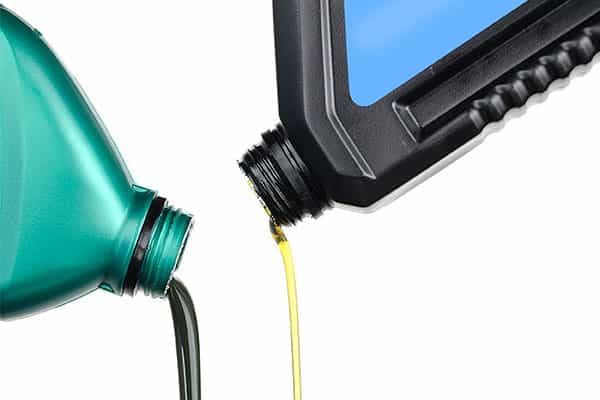Using the right engine oil is essential for keeping your car’s engine in top condition. Engine oil is responsible for lubricating the various parts of your car’s engine, which reduces friction and wear and tear. However, with so many different types of engine oils available, it can be tempting to mix them together to save time and money. In this article, we will explore the risks and benefits of mixing engine oils and provide you with some tips on how to do it properly.
Different Types of Engine Oil: Which Ones Can You Mix?
Most experts agree that mixing two brands of engine oil can be risky to your engine’s performance. That’s because different manufacturers will use various methods of production and special additives, which means there will be certain oils that include different physical properties.
There are 4 main types of engine oil: synthetic, synthetic blend, high mileage, and conventional oil. It is generally recommended that you stick to using the same type of oil throughout the life of your car. Mixing different types of oil can have adverse effects on your engine and may even cause engine failure. For example, mixing synthetic oil with conventional oil can lead to decreased engine performance and increased engine wear.

However, if you are in a pinch and need to top up your engine oil, it is generally safe to mix oils of the same type. For example, if you have a car that requires synthetic blend oil and you are running low, you can top up with another synthetic blend oil of the same weight and viscosity. Mixing different brands of the same type of oil is also generally safe.
The Risks of Mixing Engine Oils: Damage to Your Car’s Engine
While it may be tempting to mix engine oils, there are significant risks involved. Mixing different types of oil can lead to decreased engine performance and increased engine wear. For example, mixing synthetic oil with conventional oil can cause the synthetic oil to break down, which can lead to increased engine wear and decreased fuel efficiency.
Mixing different types of oil can also cause your engine to produce more sludge, which can clog your oil passages and decrease engine performance. Additionally, mixing different types of oil can void your car’s warranty, so it is essential to read the manufacturer’s recommendations before adding any oil to your engine.
How to Properly Mix Engine Oils: Tips and Best Practices
If you do need to mix different types of oil, there are a few things you should keep in mind to ensure that you do it safely and correctly. First, always mix oils of the same type and viscosity. This will help to ensure that the oils are compatible and will not cause damage to your engine.
Second, it is a good idea to consult your car’s owner’s manual to determine which types of oil are recommended for your engine. This will help you to choose the right type of oil and ensure that you are not causing any damage to your engine.
Finally, when adding oil to your engine, be sure to use a clean funnel to prevent contamination. It is also essential to add oil slowly and carefully to avoid overfilling your engine, which can cause damage and decrease engine performance.
Making the Right Choices for Your Car’s Engine
While it may be tempting to mix engine oils to save time and money, it is essential to understand the risks involved. Mixing different types of oil can lead to decreased engine performance, increased engine wear, and even engine failure. However, if you do need to mix oils, it is generally safe to mix oils of the same type and viscosity.
To ensure that you are using the right type of oil for your car’s engine, be sure to consult your car’s owner’s manual and follow the manufacturer’s recommendations.

